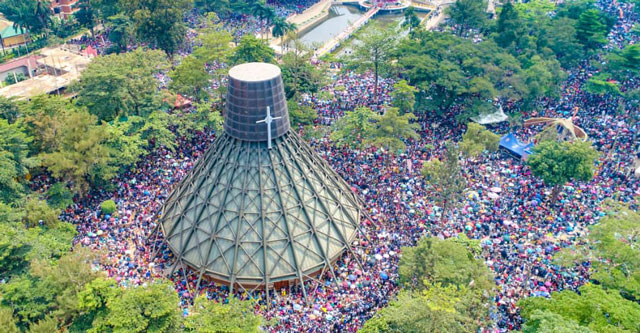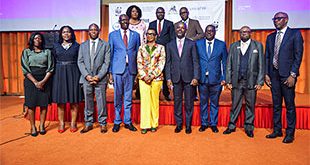
Kampala, Uganda | THE INDEPENDENT | The administrators at the Catholic Uganda Martyrs’ Shrines in Namugongo are looking for alternative means through which the faithful will be paying homage to Uganda Martyrs.
Rev. Fr. Vincent Lubega, the rector at the Namugongo Martyrs Shrine who also doubles as the parish priest, says since it is hard to predict when the COVID-19 induced restriction on mass gathering will be lifted, they had to come up with another way of ensuing continuity to the scared pilgrimage.
Lubega says that as part of the alternative means, they are planning to encourage small groups of faithful not more than 200 to organize pilgrims under their sub-parishes or parishes.
The priest says even without COVID-19, such an arrangement would be critical as one of the means to reduce the numbers of people that turn up on June 3. He notes that under this arrangement, the shrine administration can host up to five groups each day.
In this arrangement, pilgrims will be traveling to the shrines by motorized transport other than moving from their respective homes on foot. Rev. Lubega adds that during the pilgrimage, the said small groups can be organized to have a foot pilgrim ritual by moving from one designated martyr to another.
Unlike tourists who are asked to pay 5,000 shillings before accessing the shrines, Rev. Lubega notes that these organized groups of pilgrims will not be paying.
Catholics have been moving on foot to Namugongo since 1920 when a Dutch Catholic Priest, Fr. Stephen Walters organized the first official pilgrimage to the sacred place.
Available literature indicates that the first pilgrimage comprised of nine people, and numbers went on increasing most especially in the 1980’s. However, Christians didn’t adopt the June 3 date for the commemoration of the martyrs not until they were canonized.
Rev. Fr Joseph Mukasa Muwonge, promoter of the devotion to the Uganda Martyrs notes that after the canonization of the martyrs, the catholic church included them on the General Catholic calendar.
“The date chose was June 3 because it’s on this day that most were killed back in 1886. Those who died that day included Charles Lwanga and twelve others,” he explained adding that those who were killed on different days are commemorated on their respective dates of death.
*****
URN
 The Independent Uganda: You get the Truth we Pay the Price
The Independent Uganda: You get the Truth we Pay the Price


